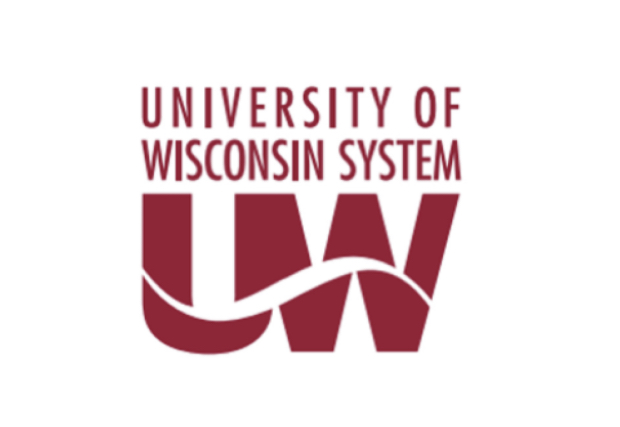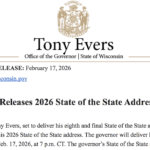The process of passing new laws is not meant to be fast. Part of the reason for the bicameral nature of Congress and the Wisconsin legislature is so the public and lawmakers have ample time to review proposed legislation.
Yet, without notice, or public hearing or any kind of debate whatsoever, budget vetoes last year by Governor Evers instituted massive new taxing and spending authority for 400 years.
The latest on efforts to thwart that move is our first of today’s Key Reads.
Understand that the new, activist majority on the Wisconsin Supreme Court so far has followed an agenda, not the Wisconsin Constitution. So, don’t get your hopes up over this, but the Court announced it will hear the state Chamber of Commerce’s challenge to Governor Evers’ vetoes, which will cause four centuries of tax and spending hikes..
Wisconsin Supreme Court will hear a challenge to governor’s 400-year school funding veto | Associated Press
The Wisconsin Supreme Court will hear a challenge to Democratic Gov. Tony Evers’ partial veto that locked in a school funding increase for the next 400 years, the justices announced Monday.
At issue is a partial veto Evers made in the state budget in July 2023 that increased revenue public schools can raise per student by $325 annually until 2425. Evers took language that originally applied the $325 increase for the 2023-24 and 2024-25 school years and vetoed the “20” and the hyphen to make the end date 2425, more than four centuries from now.
While the passing of laws is meant to be a deliberative process, those who implement policy at the local level are given wide latitude, especially school boards. There is no reason, for example, for anyone associated with the scandal at MPS, to move slowly to right the ship. Other than their own incompetence, that is.
The same ‘leaders’ who oversaw the continued spiral at Milwaukee Public Schools remain in charge of fixing all the problems there. The leadership in Madison and the MPS School Board members remain. Only those who implemented the day to day operations have left the district. They board members continue to dodge the local press and are taking a bureaucratic pace. But even when they don’t mean to be transparent, they reveal just how ridiculous they are.
One nugget in this story, below, really stands out. The proposed budget MPS passed last week was only for show. The ‘real’ budget may bear no resemblance to the proposed plan.
So why did the board delay passage of the proposed budget if it was only a formality?
Within the Board, there is absolutely no sense of urgency to fix the problems at MPS. Which is why the sooner that Board is removed, the better it will be for Milwaukee families.
MPS board gives authority to acting superintendent; no candidate list yet for interim superintendent| CBS58
Board directors for Milwaukee Public Schools (MPS) voted unanimously Monday night to formally appoint an acting superintendent, giving him the authority to make essential hires as the district searches for an interim, and eventually, permanent superintendent.
After former Superintendent Keith Posley resigned two weeks ago, the board appointed Regional Superintendent Eduardo Galvan to oversee day-to-day operations.
The board also announced it has not finalized a list of candidates for interim superintendent.
The ability to make hires is especially critical for the district’s finance office, which has been decimated by vacancies, firings and resignations.
…Board Director Henry Leonard said Galvan’s new authority will allow him to help plug some of those holes as the district prepares to budget around the lost state aid.
“When we get past the proposed budget, and we get to the real budget, that’s when the work really starts to get much more voluminous,” Leonard said. “And [Galvan is] gonna have to really work with us to make sure we can make that budget actually work.”
Leonard said he hoped the board would be close to finishing the search for an interim superintendent by next month, but a formal release by the board later said the goal is to have an interim superintendent in place by the start of the 2024-25 school year in early September.
The scandal within the Wisconsin prison system extends far beyond Waupun, where the warden and eight other staff members were recently arrested over the conditions at the facility which saw four inmate deaths, including one homicide, in the last few months.
The aging and unsafe Green Bay Correctional facility needs to be replaced.
The governor opposes the construction of any new prison, which would improve health and safety conditions for staff and inmates. Meanwhile prisons like the one in Brown County get older, and less safe with each passing day. Again, there is no sense of urgency from those in charge in Madison.
FOX 11 Investigates: 1 year of restrictions at Green Bay Correctional Institution | WLUK
Wednesday marks one year since lockdown-type restrictions were placed on inmates at Green Bay Correctional Institution.
Limits were put on things like visitation, recreation time, and showers.
…The Wisconsin Department of Corrections initially told FOX 11 last year a modified movement order was issued for GBCI due to disruptive and assaultive behavior from inmates. Kevn Carr, the former DOC secretary who recently resigned, also blamed a lack of staff in a hearing with state lawmakers.
Governor Evers called for sweeping changes in November. Six months later, the latest progress report from the state claims things are almost back to normal.
The June 3 report from the DOC says “only a state administrative rule regarding the length of recreation time offered remains suspended” at both GBCI and Waupun Correctional.
…As for staffing, FOX 11 reported in September about 40% of correctional officer and sergeant positions were vacant at GBCI. The state dashboard shows the vacancy rate currently sits at about 24%
…In two months, GBCI will turn 126 years old. Governor Evers has rebuffed requests to replace the prison, instead saying lawmakers should focus on prison system reform.
This is another festering problem with in state government: The UW System (yes we are aware of their marketing materials ,which now promote them as the Universities of Wisconsin, however they are an agent of the state government and are statutorily still, collectively, the University of Wisconsin System).
Nevertheless, their new name is not the problem…
6 UW campuses projected to have deficits, even after cost-savings efforts | WPR
Six UW schools are projected to have deficits next school year, down from 10 last year, according to Board of Regents finance committee documents. The structural deficits at those schools range from nearly $9 million to more than $500,000.
The six campuses are UW-Oshkosh, UW-River Falls, UW-Eau Claire, UW-Superior, UW-Parkside and UW-Whitewater.
The projections come amid declining enrollment at several Universities of Wisconsin campuses and after a school year where several universities were forced to furlough and lay off employees, shift funding, make cuts and restructure portions of campus operations.
…At this month’s Board of Regents meeting, Gov. Tony Evers called for an $800 million increase in funding to the university system in the next two-year state budget, which would run from 2025 to 2027. But making an increase of that size a reality will likely face opposition from legislative Republicans.
UW-Oshkosh has the largest structural deficit at $8.6 million, down from the $15.2 million last year, according to budget committee documents…
The other structural deficits are:
- UW-River Falls at $3.2 million, up from $2.0 million;
- UW-Eau Claire at $1.6 million, down from $5.6 million;
- UW-Superior at $1.5 million, up from $600,000;
- UW-Parkside at $1.0 million, down from $5.3 million;
- And UW-Whitewater at $509,174, down from the $5.9 million.
This will be one of the key budget skirmishes of next Spring in Madison. Governor Evers has proposed $800,000,000 in additional funding for the UW System. It is unlikely the expected Republican majorities in the legislature will agree to a funding increase that large. A funding increase of any significance would likely be tied to reforms in how the campuses are managed.
That is, unless Governor Evers finds more ways to spend tax dollars without involving the legislature and the activists on the Supreme Court go along with him…














